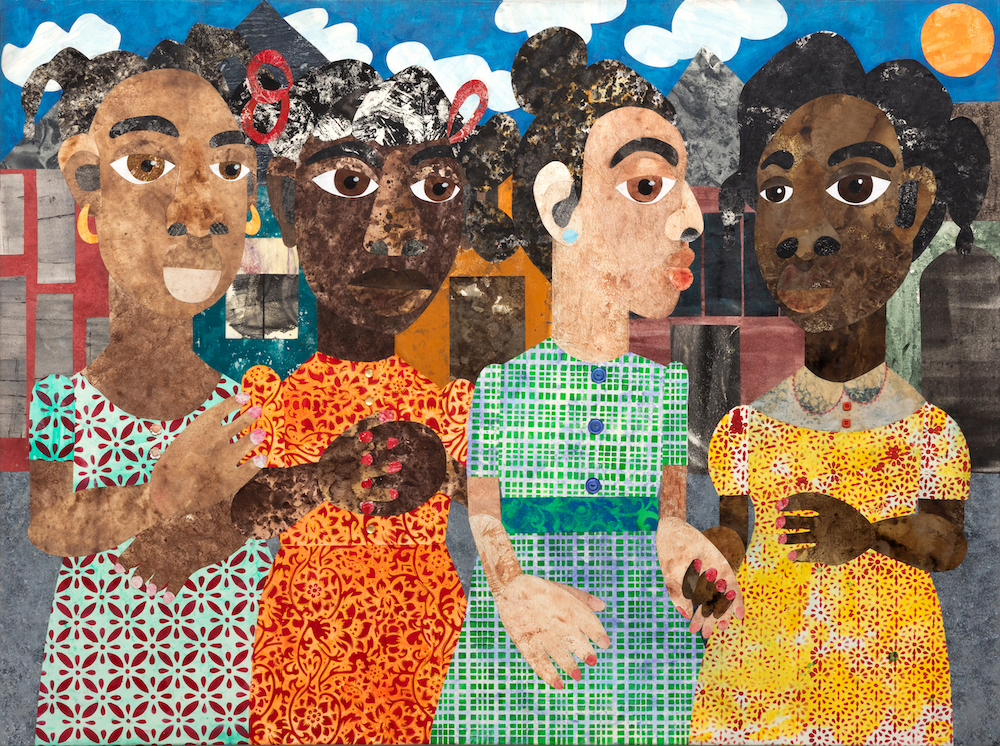In Gladys Knight’s version of “The Way We Were” (1974), she sings, “Can it be that it was all so simple then; or has time rewritten every line; if we had the chance to do it all again, tell me, would we? Could we?” Upon viewing “Evita Tezeno: The Moments We Share Are the Memories We Keep” at Luis De Jesus Los Angeles, the resounding answer is an unequivocal yes. Featuring paintings formed by Tezeno’s family memories, the show is a must-see, worth tattooing on one’s mind. These works solidify her place within the canon. They build on the tradition of predecessors like Laura Wheeler Waring, Archibald Motley, and William H. Johnson, whose African American figurative works celebrated the culture.
The painting Irene and Wilson (all works 2023)—which resembles a Kodak snapshot—is an homage to the sacred bond of her great-uncle Wilson and his wife. Depicted sitting in their living room, one can almost hear “You’re My Everything” (1967) by the Temptations playing on a 45-vinyl record with the needle crackling like Rice Krispies cereal. The artist’s uncle, with his butter pecan complexion, is sporting a tangerine dress shirt, and his almond eyes speak of an undying commitment to his wife. Sista Irene, adorned in her collard green cat-framed glasses, is curled like a comma next to her husband. Wearing violet red lipstick to match the grape high heels and purple sun flowered patterned skirt, she affectionately touches Wilson’s hand and loops her left arm under his right, as if to let the world know that he’s off the market—I’m his and he’s mine.
Childhood Friends shows four African American girls standing close together with their arms interlocked with one another. The intimacy of their arrangement suggests lasting relationships strengthened through the thick and thin twists and turns of life rooted in face-to-face exchanges—long before Instagram and Snapchat became ubiquitous. Portraying hues ranging from caramel to vanilla wafer to chocolate, their peaceful expressions overshadow the painted clouds in the sky. In a similar manner, When a Family Gathers honors the coming together of multigenerational loved ones at the table, breaking bread and sharing conversations. Like Varnette Honeywood’s Dixie Peach (1983) and Birthday (1974), Tezeno interprets her images with dignity and narrates her family memories—precious Black Lifestyles that are positively uninterrupted and baptized in joy.
Luis De Jesus Los Angeles
1110 Mateo St.
Los Angeles, CA 90021


